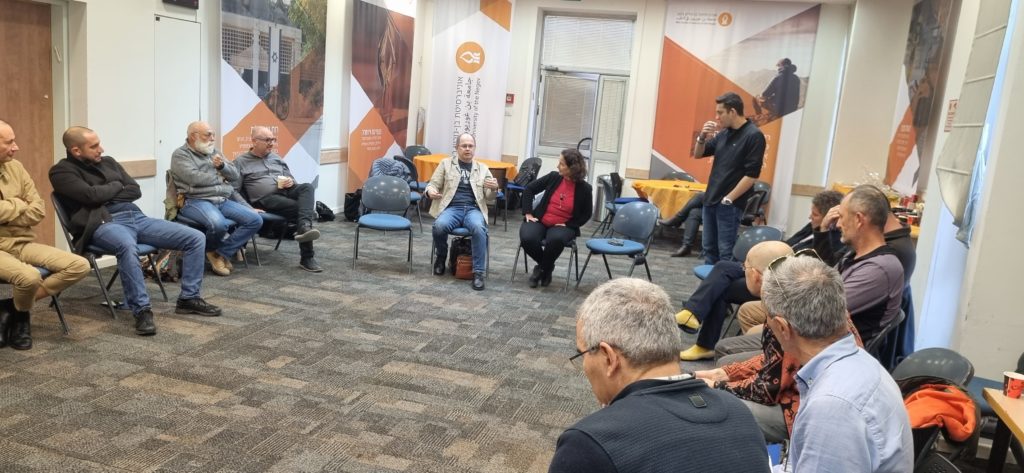Emergency Consultation and Facilitation Services
Since the onset of the war on October 7, around 13 local organizations, including educational institutions and hospitals with nationally-mixed staff, have sought our help in navigating these challenging times. In response, we have extended our proven method, previously utilized in crises, to assist these organizations in addressing the impact of national conflict within their shared workspaces.
We provide consultation for team leaders who approach us, as well as lectures about the current situation and facilitate dialogue among the staff. The first aspect of our service involves a thorough reflection on the situation. Our analysis delves into the roots of the tension between Jews and Palestinians, its present manifestations, and the dynamics when addressed in dialogue. We observe that for the Jewish national group, the acts committed by Hamas on October 7 have stirred deep existential fears, tapping into the collective trauma of the Holocaust. Israeli Jews feel unprotected, unsafe, and deserted by their leadership, leading to isolationist tendencies and a desire for revenge. Conversely, Palestinian citizens of Israel are grappling with terror and silence due to the ongoing lethal attacks in Gaza, causing mass destruction and a humanitarian catastrophe. This situation echoes their collective trauma of the Nakba and is compounded by institutional persecution by their own government, leaving them in fear and often silence. As two traumatized collectives, both groups have a desire to protect themselves, sometimes manifested in offensive or aggressive ways. Understanding each group’s perspective is crucial in addressing the situation.
In creating an inclusive and safe workplace, our dialogues offer a space for both Palestinian and Jewish staff to express their national identities, fears, and needs. This environment encourages mutual understanding and willingness to listen. We emphasize the importance of speaking out during a crisis, as silence only reinforces the national silencing campaign against Palestinians and those opposing the war. Open communication is key to fostering reflection and collective progression.
An example of our impact is illustrated in our work with the academic staff at the Department of Civil Engineering at Ben Gurion University of the Negev. We conducted a “preparation for returning to school” workshop, focusing on personal experiences of the war, classroom conduct in a multi-identity environment, and the experiences of Palestinian students on Israeli campuses. The dialogue explored handling political arguments in the classroom and protecting students from potential harm. We discussed various opinions on how to approach such situations, ranging from avoiding the topic to encouraging free expression and understanding the consequences of each approach.
We recognize that we are in the midst of a historical event that is reshaping the Palestinian-Israeli conflict, leading to more violence and difficulty. This escalation affects Palestinian and Jewish relations in Israel and beyond. In our dialogue sessions, participants often express caution, apprehension, mistrust, and sometimes verbal opposition. However, many participants, especially those from oppressed minority groups, find these spaces protective and validating, allowing them to share opinions and ideas that are being silenced in the broader society. We work with the belief that changing dialogue dynamics within groups, such as those in educational and work settings, can influence broader societal realities.

